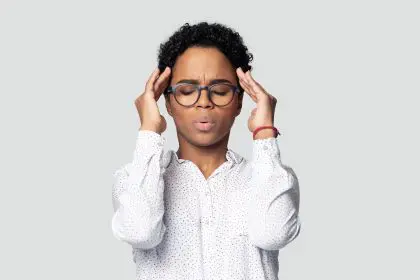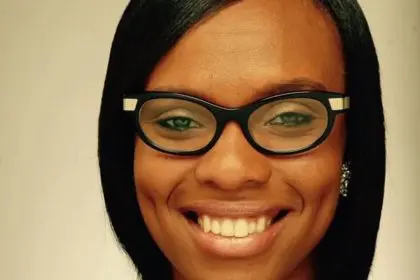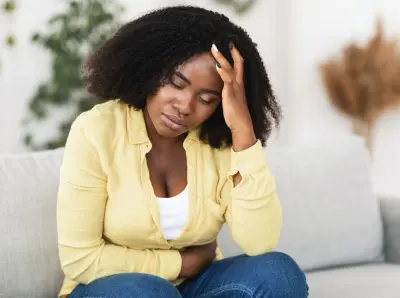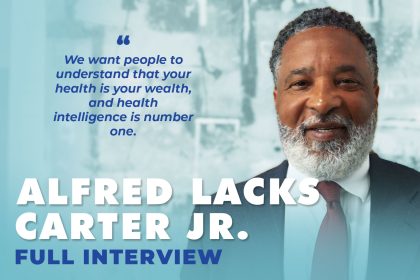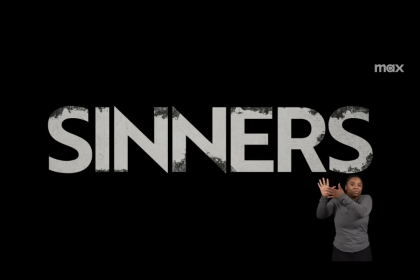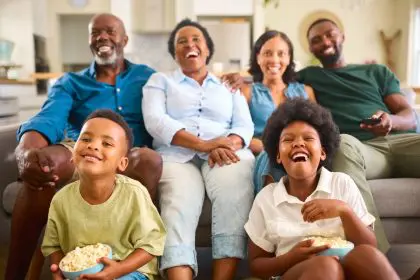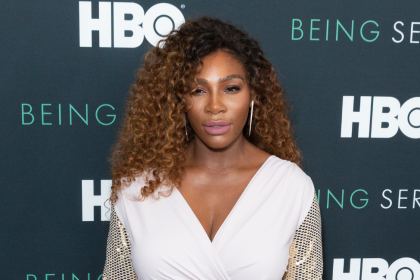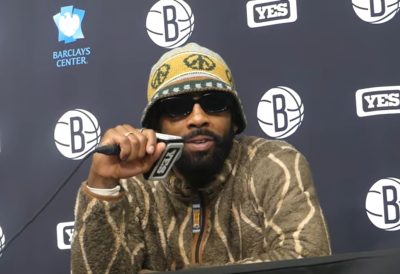Dr. Eraka Bath is a Professor and Vice Chair for Justice, Equity, Diversity, and Inclusion in the Department of Psychiatry and senior advisor for the UCLA DGSOM Antiracism Roadmap (ARR). She is board-certified in child and adolescent, adult, and forensic psychiatry and has a long-standing interest in community mental health. She has committed her career to advancing health equity for ethno-racially minoritized and structurally marginalized youth and families, with a specialized focus on youth impacted by the foster care and juvenile legal systems.
She has dedicated her time to working with structurally vulnerable populations and consults regularly with the court system. Her research portfolio has included funding from the National Institutes of Health, PCORI, and the Los Angeles County Department of Probation. She teaches on structural racism and antiracism and its impacts on mental health, biomedical research, and the workforce.
Dr. Patricia Era Bath
Dr. Bath was an American ophthalmologist, inventor, humanitarian, and academic. She was an early pioneer of laser cataract surgery. She also became the first woman member of the Jules Stein Eye Institute, the first woman to lead a post-graduate training program in ophthalmology, and the first woman elected to the honorary staff of the UCLA Medical Center. Dr. Bath was the first African-American person to serve as a resident in ophthalmology at New York University. She was also the first African-American woman to serve on staff as a surgeon at the UCLA Medical Center. Dr. Bath was the first African-American woman doctor to receive a patent for a medical purpose. She holds five patents and founded the non-profit American Institute for the Prevention of Blindness in Washington, D.C.
Dr. Eraka took a few minutes to speak with rolling out publisher and CEO Munson Steed.
[Editor’s note: This is an extended transcription. Some errors may occur.]
Munson Steed: Hey, ladies and gentlemen, this is Munson Steed. Welcome to another edition of Health IQ, where we bring you some of the most dynamic, insightful, intelligent, and real healers in the community. I am so proud to bring not one but two, almost probably three generations of greatness on camera. I’d like to introduce Dr. Eraka Bath. How are you?
Dr. Eraka Bath: I’m great. How are you, Munson?
MS: I’m fantastic. Let’s talk about Health IQ and why you are even talking about health disparities, health equity and the real beauty of us having this discussion and educating our community.
EB: It’s a life and death matter. Dr. Martin King, Jr. had a quote, and I might butcher aspects of it but I’m gonna try to paraphrase. But of all injustices, injustice in health is the most shocking and inhumane. And so, that’s why we have to talk about it and one of the biggest health threats now, public health threats, is racism, and experiencing racism, and structural racism, and so many different jurisdictions have declared racism as a public health threat–the Centers for Disease Control, the American Medical Association, the National Institutes of Health. So, we’re really at a crisis in terms of how racism impacts health and it often impacts health in adverse ways; that results in these inequities that you first brought up.
MS: When you think about inequities, and you’re growing up in Mississippi, you may not know that you’re experiencing it, so for those of us who really need to understand the movement, or even understand that there is a movement, given that you mentioned Martin Luther King, can you share with them insights on when a person might be experiencing it, and not even know it.
EB: Hmm, I mean sometimes that’s hard, right? … There’s an expression that ZIP codes determine health outcomes, right? So where you live, work, play, breathe, go to school–all of that is connected to your health–the density of fresh produce and grocery stores in certain neighborhoods versus the amount of liquor stores versus the amount of healthcare facilities. If you look at, and there’s national maps that kind of look at these indices, if you will, and it can show that certain ZIP codes that have less Trader Joe’s, less Whole Foods, markets, less lower-performing schools also have negative health effects as a population, and so that matters.
And so how would someone know? A lot of times they wouldn’t, unless they’re able to get outside a little bit, right? You hear about sometimes when news from underperforming, that are structurally vulnerable, these neighborhoods. And they get the chance to go to be bused to a different school in a more affluent neighborhood, and they see the disparity, the difference, the access, the resources. So it’s sort of the same thing. But also, I think now, thanks to the Internet, there is access to information around. There’s something called the Social Vulnerability Index and this measures really, how structurally vulnerable certain neighborhoods and communities are.
So, you can see, you could put in your own ZIP code and see if you live in one of these vulnerable neighborhoods. In California, we have something called portrait of California. Actually, and you can Google this, and you can see, if you live in South LA versus Malibu, there’s a 10-year life expectancy difference. So, there’s a way to access the knowledge but when you’re experiencing it, sometimes it’s hard. But so how do you address that, right? If you see, it’s like way better in Malibu, do you try to make an appointment for a doctor over there? Do you try to get your kid in school over there, or do your grocery shop?
MS: I love that. Having, if you would share, and obviously congratulations on your mother and the progress, if you’ll say her name. Because it’s so beautiful for us to think and celebrate during women’s month. Obviously, we make black history every single day, So it’s not a monthly experience. But let’s just recognize the ancestors in the room that, and obviously your mom, that are really made a commitment to be inventive and serve our community.
EB: Yes, so yes, I believe in the expression, say her name. Dr. Patricia Era Bath was my late mother, and she was recently inducted into the National Women’s Hall of Fame, actually, on Tuesday, March 5th, 2024. Yeah, that was a really amazing experience and she was inducted, among other really just critical thinker women inductees such as Kimberlé Crenshaw, Loretta Ross.
So Kimberlé Crenshaw came up with the term intersectionality, and really gave Women of color vocabulary to sort of name their experiences and marginalization. Loretta Ross, Co-Founder of Sister Song and the reproductive justice movement, as well as the calling out to call in Peggy Macintosh, who really codified the terms around white privilege, and really helps educate white people on how to do a privileged check. So, so many different important scholars, Serena Williams as well, Ruby Bridges whereas among some of the others in the induction class.
MS: Take us through the process and ’cause we didn’t have the privilege of having a mother who could whisper into your ear, the beauty that was inside of you, that some other young woman may not hear, or that you did hear as you were growing up.
EB: Well, my mom definitely always pushed me to be confident, authentic. She was bold, and she encouraged me to be bold, and many times when you know how parents can embarrass their kids, and when I look back on the moments I was like, don’t do that, but it was really kind of giving me a roadmap for how to live and be brave. And that’s so important, particularly as mothering and raising daughters, right?
We need more messages that encourage us to be bold, be brave, to not shrink, to not dim the light. And so I feel like those were the sort of messages that I observed firsthand in terms of how she would just show up and to claim space.
MS: The beauty of claiming space, even expertise. When you think of having someone close to you, like your mom and her commitment to vision as a human right. What she sees that was pretty blinded before she put a light on it, that our community may have no idea what it was like to advocate for us to be able to see?
EB: Yeah. Well, I mean one of the things that she, she graduated medical school in 1968, and then went back to, she trained at Howard University College of Medicine, which at the time was one of the three HBCU medical schools, right? And being a child of Harlem, who grew up in Harlem, went back from Howard to Harlem to do her internship, and then begin her residencies and fellowships at NYU and Columbia.
And one of the things she noticed early on, was that the type of eye care that the patients at Harlem Hospital were getting was very different than what she was seeing at Columbia, right? And it was separate and not equal, okay, and that’s what you were talking about. This sort of dissonance between the care that people are receiving, and then they go just 4 miles down the road, it’s a radically different experience. And so she observed that, and she wanting, her main driver to becoming a physician was to help and really to mitigate the negative health outcomes of her community and those who are structurally vulnerable.
So she had her Columbia preceptors, professors come down to Harlem hospital so that they could perform the first eye surgery there. And then wrote a letter to sort of codify it, to archive it, because we also have to be grios in our community and be the stewards of her own stories, right? ‘Cause our history is often under attack, and so she made sure to document that the first surgery was done on this date. I assisted and we hope that the partnership that exists in name can actually be a substance. So early on she was really identifying differences in care and also outcome.
She published a paper looking at the disproportionate rates of blindness due to glaucoma and the black community as compared to white people, and it was a large data set and published a paper on that, and she advocated for something called community ophthalmology. It was a discipline and a term that she coined really to have eyesight be a basic human right and she coined it as the gift of science. And she really wanted eye care to be part of primary care, because there is so much preventable blindness and when you can have early intervention and prevention, you can disrupt sort of those negative outcomes that could result in blindness.
MS: Yeah, excuse me when you look at where you are. Why have a purpose-driven life? Like you could have some cushy, I’m not gonna touch these hot potato issues at all. Why have a collective healing mindset even today?
EB: You mean me personally, or I mean, I don’t know. I mean black, white wealth gap, like most of us have to work, even if we have a successful parent, right? Doesn’t matter and like all the generations, I’m standing on shoulders, but people are gonna be standing on mine, and I’m raising my daughter so that people can stand on hers too, right? So to whom much is given, much is expected, and there’s still so much work to be done.
Our health care outcomes and inequities that are incredibly racialized, are very persistent to this day, right? If we look at the rates of death for black birthing people, they’re very high compared to all other populations, and this is, you know, 2024, and we’re still having these great disparities. So there’s no, there’s not time to really rest, rest. We can rest, resist, repeat right, but we still have to be fighting the fight.
MS: Say that again.
EB: We still have to be fighting the fight.
MS: No, the other part you’re good.
EB: Rest, resist, repeat. Rest is important for us as black people, as black women. We don’t get enough of it, but that’s not gonna stop us from trying to innovate, trying to help, trying to restructure things, trying to do good, heal.
MS: In terms of superpowers and the whole value proposition of why our young people, both young black men and women. Why should they understand that if they were sitting next to both your mother and yourself that you would want them to be their best self?
EB: Well, I’m hoping that everybody wants that, and that’s not unique to me or my mom, or I’m sure that’s what you’ve inspired too, Munson, right? It’s like, that’s the goal.
MS: I really don’t. I’m pushing back on something that is so. I think almost absent in the conversation and context of collective black thought. In that, if you didn’t have the degree that you had, if I was feeling like I was going blind. Your mom has not only read or written a roadmap. You just as her daughter could say, here are other things for you to do, because you have an expertise.
You have not only the degree. You could say, I could say my tooth’s hurting, you wouldn’t be just giving me a drug. You have a license, you have some cadence and some professional degrees and license in life that nobody can now deny you. A level of service and care, and what I’ve seen in my lifetime from black doctors who have that commitment that is in your pedigree, that they truly can give, and I’m sure your mom gave plenty of eye exams, insight, and the person walked out didn’t have insurance, and was able to walk down a Harlem without being blind, and she just gave.
But without the expertise and wanting to best her best, battle being the best. Because that is a tough road for everyone who is black and excels in areas that clearly, it wasn’t. She was surrounded by 18 more sisters sitting with her, that had to be a lonely road at Columbia at that moment, 1968. Come on, Voting Rights Acts, barely happening at that moment. This isn’t a comfortable spot, and I don’t want the audience to believe in 2024 that, that would.
There was some level of comfortability of trying to heal black people that wasn’t like. Doctors, We’re still fighting to get in the room from public hospital. So I just want us to think about best in the capacity that allows us to have much more license and capacity to heal our community. So, that was more of what I was speaking to.
EB: Yeah, well, and I wanna also add an addendum, if you will, to that, because yes. I mean for my mom, her parents were very education-focused, and they saw education as a roadmap out of poverty, and to a better life. Now we know that many people get educated, and that’s not a roadmap, but back in Harlem, in the ’40s. It seemed that that was closer, the sort of world view, I think, at least from her parents’ perspective, that that was going to be the best fighting chance that we can get. And my mom raised me with that same ethos.
But, I would say, it’s based on what our culture values right? They value alphabets, degrees, and we know that with higher degrees of educational attainment that people have on average, right? Higher income and income-earning potential. That said, knowledge isn’t only contained by those with degrees and this whole, I would love to just sort of talk about the concept of epistemic injustice, right? That really gives people the most power, who have the most sort of degrees and knowledge and typically black people, black women people who are ethno-racially minoritized.
We tend to experience epistemic injustice, because we’re not really given the benefit of being the producers of knowledge right? And so how can we, in this sort of culture, also elevate those with lived experience. Because if I wanna learn about substance use, or if I wanna understand anything, it’s gonna be helpful to hear from someone who has lived experience. Maybe, No, they haven’t done 10 degrees. but my degrees versus their lived experience, like both matter, right?
But we live in a society that only values the alphabets and not the people who may have the experience, who can tell us so much more. And so, I wanna sort of elevate, a more multi-disciplinary, multi-modal pluralistic form of thinking about problems that also enlist people who are experiencing those and have much more proximity as part of the solution.
MS: I applaud the clear insight. Definitely value recovery coaches that are there, doulas, who are there. But with each acquisition, I just think that skill set exchange and skill set acquisition has to be a priority for our community. Knowing the numbers, I agree, and I think that how we disseminate the numbers, on what a great blood pressure is, or understanding that you can heal from certain types of diabetes and experience, and learn from someone who has managed the disease professionally. So I agree, 100% and the beauty of what you were saying.
EB: Well and also, when we think about it, the people who do have experience are the way our sort of medical enterprises. It’s very devaluing of those folks, right? So there’s no reason that it should only be, the person with the biggest alphabet determining everything. Because we don’t know everything. I mean, and that’s part of the epistemic injustice is not recognizing the vast knowledge base, like that exist within communities and that communities and community members, whether it’s faith-based organization or people in recovery. They’re gonna have knowledge that I would never have unless I had that same experience. Does that make sense?
MS: It does. And I believe in lived experience and shared lived experience in continuing to increase the value of those who serve like yourself. So I truly appreciate all that you continue to give to our community, to heal. Say Mom’s name one more time.
EB: Dr. Patricia Era Bath.
MS: I just like the way you said it, but I want our community to know that she means the world to us, share if you’re thinking about naming a baby girl tomorrow. You could actually name her either one of those names and know that she’s surrounded by someone who is very proven to change the world in a meaningful way for all of us here at Health IQ. Just like to thank you all for being here with my dear sister Eraka Bath. I can’t say it’s beautiful as you do. MD, so she’s all of that being a sister with superpowers, and truly there to serve in our community. Thank you for being on Health IQ.
EB: Thank you for having me.

